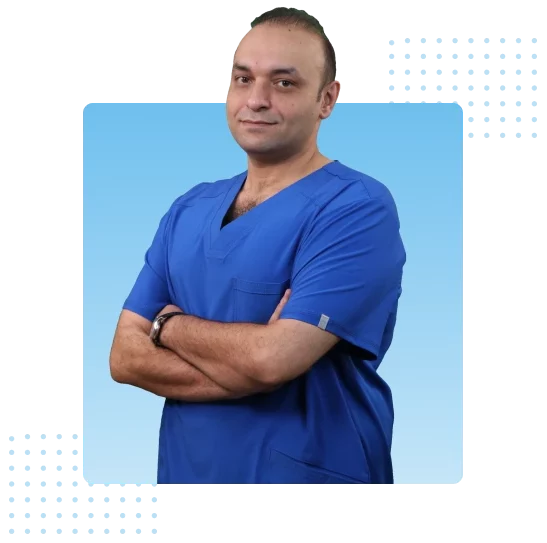Cleft lip and palate surgery is a crucial milestone in improving the quality of life for children facing this congenital challenge. Achieving the best outcome relies heavily on precise post-operative care. Early and rapid diagnosis of infection after cleft lip and palate surgery can prevent serious complications and significantly aid the healing process. This article is designed to help parents clearly identify the symptoms of infection, understand the contributing risk factors, and know the critical signs that demand immediate medical attention.
The Critical Importance of Recognizing Post-Surgical Infection
While the incidence is low, if a post-operative infection after cleft repair is left untreated, it can lead to several serious issues, including suture dehiscence (the wound reopening), painful fistulas, difficulties with feeding and speech, and even the need for costly revision surgery.
Recognizing early signs and diagnosing infection after cleft repair is therefore paramount, particularly because the oral cavity is a moist, microbe-rich environment where a fresh surgical wound is highly susceptible to contamination. Parents and caregivers must maintain extreme vigilance to ensure immediate action is taken if an infection occurs.
Symptoms of Infection After Cleft Lip and Palate Surgery
Infection symptoms can manifest locally (at the wound site), systemically (affecting the whole body), or through behavioral and feeding changes. The presence of a single sign is not always conclusive, but a combination of symptoms constitutes a serious warning that must be evaluated by a doctor.
Local and Visual Symptoms
- Persistent and Spreading Redness: Redness around the suture line that lasts longer than 24 to 48 hours and visibly begins to spread outwards.
- Unusual Swelling and Pain: Abnormal swelling accompanied by tenderness to the touch, warmth at the wound site, or a feeling of pressure.
- Purulent Discharge or Foul Odor: The presence of yellow, green, or thick pus-like discharge from the surgical site, and/or chronic bad breath that persists even after rinsing.
- Partial or Complete Suture Dehiscence: Any sign that the stitches are opening, which may indicate a deeper infection.
- White Streaks or Patches: These can be visible on the incision line or palate, sometimes indicating fungal or severe bacterial growth.
Systemic and General Symptoms
- High Fever Unresponsive to Antipyretics: A fever over ۳۸.5°C (101.5°F) that does not decrease after administering prescribed fever-reducing medication.
- Severe Irritability and Fussiness: Excessive crying and restlessness in the child that cannot be calmed by typical comforting methods.
- Decreased Appetite and Feeding Refusal: The child shows a noticeable reluctance or refusal to drink liquids or feed, which can rapidly lead to dehydration and general weakness.
- Signs of Dehydration: A critical sign requiring immediate care is reduced urine output or a dry diaper for more than 8 hours.
Behavioral and Feeding Symptoms
- Difficulty Sucking and Swallowing: New or increased difficulty with feeding that was not present before the surgery.
- Persistent Bad Breath: A chronic foul odor from the mouth, even after rinsing with cooled, boiled water, indicating active infection.
Risk Factors Contributing to Post-Operative Infection
Understanding risk factors helps in proactive prevention of post-operative infection cleft lip and palate. These factors include:
- Manipulation by the Child: Scratching, chewing, or touching the wound with hands or foreign objects (like metallic spoons, small toys, or pacifiers) can introduce bacteria and increase the risk of cleft palate surgery infection.
- Inappropriate Diet: Consuming dry, crunchy, or fragmented foods (such as toast, chips, or foods with rough peels) can put pressure on or scratch the sutures, increasing infection risk.
- Poor Oral Hygiene: Inadequate rinsing or irregular cleaning can lead to bacteria buildup and raise the probability of infection.
- Pre-Operative Illness: Having a respiratory or oral infection (such as a cold) immediately before surgery can set the stage for post-operative complications.
- Prolonged Hospital Stay/Exposure: Extended time in the hospital or contact with other sick patients may increase the risk of a surgical site infection.
- Poor General Health: Any condition that weakens the body’s immune defense system can slow the healing process and heighten the likelihood of infection.

At-Home Care for Infection Prevention
Diligent home care plays a vital role in preventing and controlling initial infection after cleft lip repair and can significantly accelerate the healing process.
- Maintain Oral Cleanliness: After every feeding or drink, gently clean the child’s mouth using 5 to 10 mL of cooled, boiled water (or saline solution) to rinse the area.
- Avoid Toothbrushing: Refrain from using a toothbrush for at least the first three weeks. Instead, use a moist gauze pad to gently clean the surface of the teeth and gums.
- Strict Soft Diet: For the first three weeks, adhere only to soft, pureed foods that are easy to swallow, such as yogurt, pudding, or mashed potatoes.
- Avoid Hard Utensils: Use soft-tipped spoons or soft-rimmed cups only. Avoid straws, hard plastic cups, and metal spoons to prevent pressure on the sutures.
- Pain and Fever Management: Administer prescribed Acetaminophen or Ibuprofen at the correct intervals to manage pain and keep fever under control, as directed by the surgeon.
- Antibiotic Compliance: Crucially, complete the entire course of prescribed antibiotics exactly as instructed by the surgeon, even if the child appears to be recovering well.
- Prevent Wound Manipulation: Continuous parental supervision is essential, especially during sleep. Ensure the child wears Arm Splints consistently to limit their ability to touch or rub the surgical site.
When to Seek Immediate Medical Attention
If you observe any of the following conditions after the surgery, you must contact your surgeon immediately or go to the emergency room without delay:
- High, Sustained Fever: A temperature above ۳۸.5°C (101.5°F) that does not respond to medication. This may indicate a serious systemic infection.
- Active Bleeding: Fresh, bright red bleeding from the surgical site or nose.
- Chronic Purulent Discharge: Persistent yellow, green, or foul-smelling discharge, which may indicate an active abscess or infection requiring reassessment and a change in antibiotics.
- Severe Local Reaction: Worsening swelling, widespread redness, and any difficulty in the child’s breathing.
- Severe Lethargy: Extreme weakness, severe irritability, or complete inability to feed or drink, signaling acute distress.
Conclusion
Post-operative infection in Cleft Lip and Palate Surgery is a serious but largely preventable and manageable concern. Recognizing the subtle warning signs, diligently maintaining oral hygiene, strictly following the soft diet, and adhering to all medical aftercare instructions can significantly reduce the risk of complications. Parents and caregivers must immediately contact their surgeon should any abnormal change occur in the child’s general condition or at the surgical site to prevent serious issues and ensure the best outcome.
Frequently Asked Questions (FAQ)
A mild fever up to 38°C (100.4°F) in the first 48 hours is normal and indicates the body’s inflammatory response to surgery. However, any higher or persistent fever needs medical investigation.
No, minor, faint redness is normal. However, if the redness is accompanied by swelling, pain, warmth, or discharge, infection is highly probable.
A soft, non-chewable diet is generally recommended for 2 to 3 weeks post-cleft lip surgery, and often longer (3–۴ weeks) for cleft palate repair, as advised by your surgeon.
Until the sutures are fully healed, it is best to only use cooled, boiled water for rinsing. Non-alcohol, diluted mouthwash may be prescribed by your doctor but should not be used otherwise.




